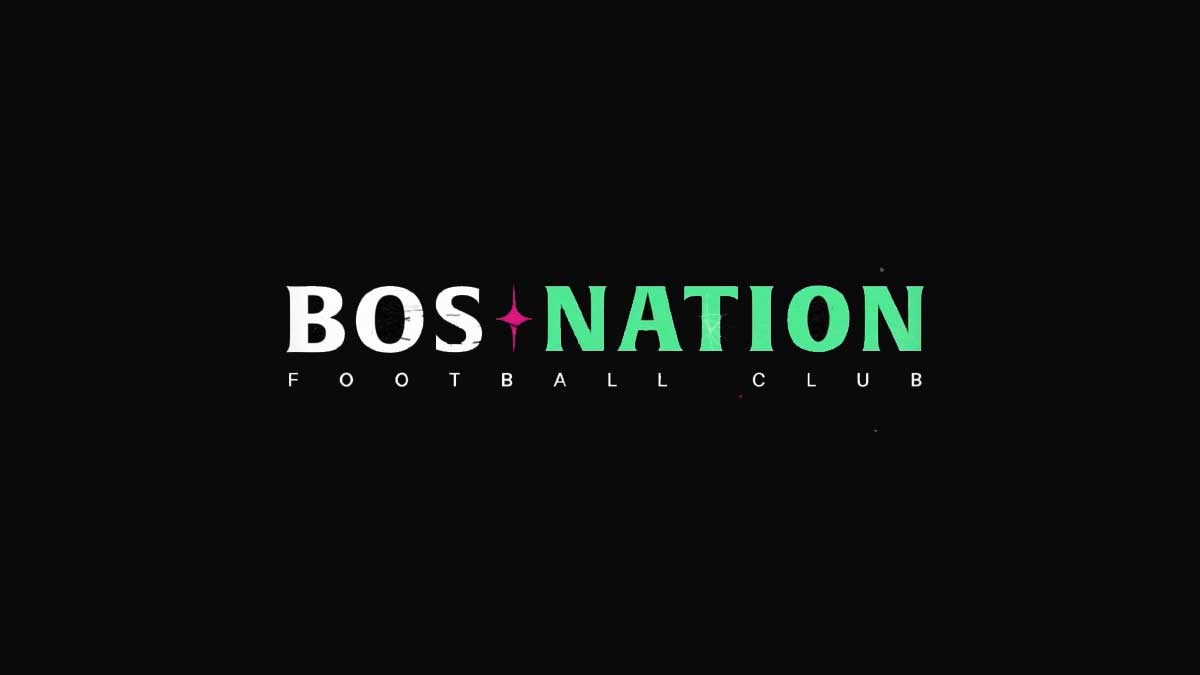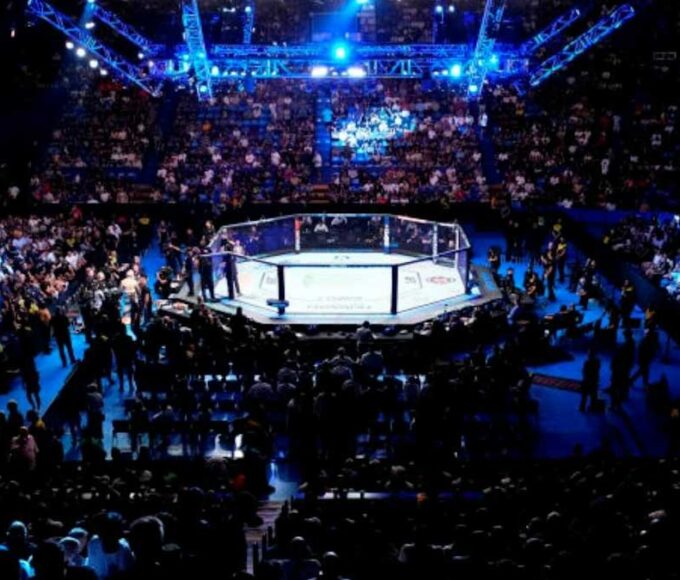- Home
- Billionaires
- Investing Newsletters
- 193CC 1000
- Article Layout 2
- Article Layout 3
- Article Layout 4
- Article Layout 5
- Article Layout 6
- Article Layout 7
- Article Layout 8
- Article Layout 9
- Article Layout 10
- Article Layout 11
- Article Layout 12
- Article Layout 13
- Article Layout 14
- Article Sidebar
- Post Format
- pages
- Archive Layouts
- Post Gallery
- Post Video Background
- Post Review
- Sponsored Post
- Leadership
- Business
- Money
- Small Business
- Innovation
- Shop
Recent Posts
Boston Women’s Soccer Team Rethinks ‘BOS Nation’ Name

The Boston Women’s Soccer Team, the newest addition to the National Women’s Soccer League (NWSL), is reconsidering its controversial name, BOS Nation, after it sparked significant backlash. The team, slated to start playing in 2026, is part of an effort to revive Boston’s women’s soccer legacy, but its name choice has already garnered criticism, and now the franchise is looking into alternatives.
The name, an anagram of “Bostonian,” was unveiled amid excitement for the team’s arrival in Boston. However, its debut was met with swift and scathing reactions, with critics labeling it “the worst name possible” and “objectively awful.” The backlash intensified when a campaign featuring a one-minute promotional video was shared across social media platforms, further stoking controversy. The video featured a series of humorous and somewhat cringe-worthy statements about Boston’s sports history, with a focus on “balls” — old balls, new balls, cold balls, and even “Goat Balls.” The clip then suggested that the city “might have too many balls” and that the new NWSL team could “add a new chapter to our city’s legacy.”
The video was meant to promote the team’s identity but instead ended up alienating many, especially due to its male-centric tone. The phrase “too many balls” quickly became a point of contention, leading some to describe the campaign as tone-deaf and out of touch with the values of the NWSL. Professional athletes, including nonbinary and transgender players like Quinn from the Seattle Reign, voiced their concerns, calling the message transphobic and stating that it didn’t align with the inclusive nature of the league.
The team’s official launch included a URL, “toomanyballs.com,” which redirected to the team’s official NWSL website. However, this domain was soon taken down in response to the backlash, along with a $35 T-shirt featuring the “too many balls” slogan that had been sold in the team’s online store. The negative response was so overwhelming that the team’s management decided to issue a statement acknowledging the concerns, admitting that the rollout missed the mark, and committing to reevaluating the team’s identity.
In a post on X (formerly Twitter), the Boston franchise expressed that it had “seen the feedback” and was “actively listening” to criticism. As part of a broader effort to repair the situation, the team announced that it would embark on a process to gather input from the community and consider a new name. Along with this, the team outlined steps to create a more inclusive and representative environment. These included the appointment of a diverse group of brand advisers and the organization of listening forums to ensure that the team’s identity reflected the strength, diversity, and passion of Boston’s communities.
Critics, particularly those from the NWSL community, did not hold back in their assessments of the campaign. Meghann Burke, director of the NWSL Players Association, expressed her disappointment, stating that she didn’t expect the team to be “so unserious.” Burke added that she was hoping the name and campaign were part of an elaborate joke that would eventually be followed by a more thoughtful and meaningful announcement. Meg Linehan, a reporter covering the NWSL for The Athletic, called the rollout “the worst NWSL launch I’ve ever seen in the history of the league” and criticized the lack of preparation given that the team had been officially announced more than a year ago. On social media, reactions from fans and players were swift and overwhelmingly negative. Many voiced their frustration with the team’s tone-deaf approach, while others lamented that the Boston franchise had wasted an opportunity to create a meaningful and inclusive identity for its women’s soccer team.
The team’s efforts to recover from the controversy have included the removal of the “too many balls” T-shirt from its store and a commitment to engaging with the community to develop a more suitable name and image. The franchise’s leadership has pledged to take a more serious approach moving forward, focusing on actions that align with the NWSL’s core values of inclusion, respect, and empowerment.
Boston has a rich history of professional women’s soccer, with the Boston Breakers having played in the Women’s Professional Soccer league from 2009 to 2012 before joining the NWSL from 2013 to 2017. However, after the Breakers folded, Boston went without a top-tier women’s soccer team for several years. The announcement of the new NWSL franchise, initially planned to begin play in 2026, was meant to rejuvenate the city’s women’s sports scene. The team is owned by Boston Unity Soccer Partners, an all-female group that includes high-profile investors like Olympic gymnast Aly Raisman and actress Elizabeth Banks. The franchise reportedly paid $50 million in fees to join the NWSL and plans to play its home games at White Stadium in Franklin Park, which will undergo substantial renovations to accommodate the team.
The team’s identity, including its colors and values, is still a work in progress. The main color is described as “Championship Green,” complemented by accents such as “Relentless Raspberry,” “Loyal Charcoal,” “Daring Pink,” “Rise Yellow,” and “Orange Press.” These colors are intended to represent the diversity of Boston’s neighborhoods and symbolize the team’s values as it aims to make an impact in the city’s sports landscape.
Despite the rocky start, the Boston franchise now has an opportunity to recover from its missteps and create a meaningful connection with its fans. By listening to the criticism and engaging in a more thoughtful and inclusive process, the team could turn the page on its controversial name and emerge as a positive force in women’s soccer. Fans and players alike are watching closely to see if the team can turn its image around and fulfill its promise to represent the diverse and passionate communities of Boston.
Recent Posts
Categories
- 193 Countries Consortium Partner1
- 193cc Digital Assets2
- 5G1
- Aerospace & Defense48
- AI37
- Arts3
- Banking & Insurance11
- Big Data3
- Billionaires1,028
- Boats & Planes1
- Business332
- Careers13
- Cars & Bikes79
- CEO Network1
- CFO Network17
- CHRO Network1
- CIO Network1
- Cloud10
- CMO Network18
- Commercial Real Estate7
- Consultant1
- Consumer Tech194
- CxO1
- Cybersecurity73
- Dining1
- Diversity, Equity & Inclusion4
- Education7
- Energy8
- Enterprise Tech29
- Events11
- Fintech1
- Food & Drink2
- Franchises1
- Freelance1
- Future Of Work2
- Games149
- GIG1
- Healthcare79
- Hollywood & Entertainment203
- Houses1
- India’s 1000 Richest1
- Innovation46
- Investing2
- Investing Newsletters4
- Leadership65
- Lifestyle11
- Manufacturing1
- Markets20
- Media195
- Mobile phone1
- Money13
- Personal Finance2
- Policy569
- Real Estate1
- Research6
- Retail1
- Retirement1
- Small Business1
- SportsMoney42
- Style & Beauty1
- Success Income1
- Taxes2
- Travel10
- Uncategorized12
- Vices1
- Watches & Jewelry2
- world's billionaires996
- Worlds Richest Self-Made Women3
Related Articles
Valheim: The Indie Phenomenon That Captured the Hearts of Gamers Worldwide
Since the early access release of Valheim, an indie Viking survival game...
By Worlds GamesJanuary 5, 2025Bungie Seeks Analyst for Marathon Ahead of 2025 Release
Bungie is gearing up for the release of its highly anticipated game,...
By 193cc Agency CouncilJanuary 1, 2025New Characters, Team-Ups, and Maps in Marvel Rivals Season 1
Season 1 of Marvel Rivals is fast approaching, bringing with it a...
By 193cc Agency CouncilDecember 31, 2024Alex Pereira Teases Surprise Fight at UFC 312, Fuels Speculation
UFC light heavyweight champion Alex Pereira has set the MMA world abuzz...
By 193cc Agency CouncilDecember 31, 2024














Leave a comment